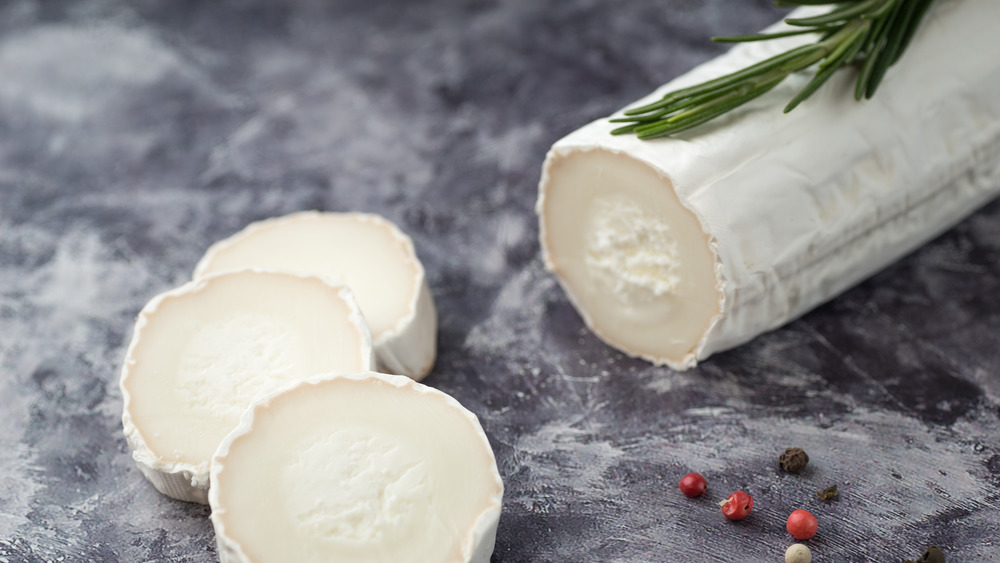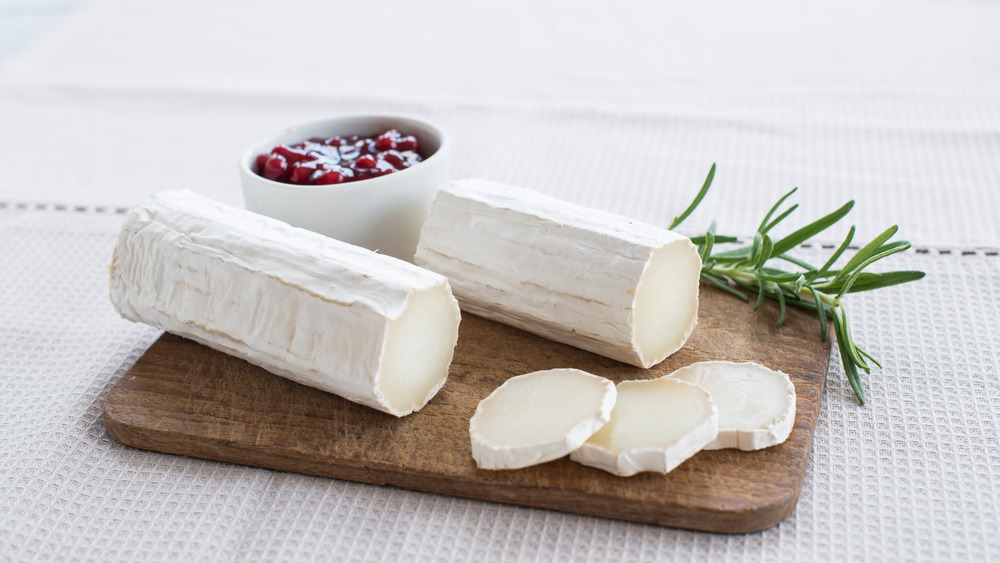Here's Why You Should Eat More Goat Cheese
According to I love Imported Cheese, we have the Moors to thank for the creamy cheese known as goat cheese. It has been made and enjoyed since the 8th century, originating in the Loire Valley, and is often called chèvre which is French for goat. Goat cheese is not only good to eat, it's good for you; however, it is one of those cheeses people tend to either love or hate. There is no in-between with this tangy, but mild cheese that the Wisconsin Cheese Man notes has some people expressing their disdain for the flavor by labeling it a bit too "barnyard." Ouch. Not the most appealing review.
Still, goat farms are on the rise in the United States. Per the Washington Post, goat's milk is the most popular milk on a global scale. Americans are just a little late to the game, but catching up. Our dairy goat farms grew 61 percent between 2007 and 2017. And for good reason, goat's milk and cheese have some incredible health benefits that may leave you reconsidering your feelings about and your consumption of this soft, unripened cheese, particularly if you are among the 30 to 50 million Americans who are lactose intolerant.
Goat cheese is full of protein and vitamins
Per Healthline, while the nutrients of this cheese vary based on the variety you eat, a one-ounce serving, which we admit is small, is low on calories, just 102, but it is also rich in protein, vitamins, and minerals. Goat cheese also contains a fair amount of probiotics which can help keep our gut healthy and reduce inflammation. Healthline notes when picking out a variety of this cheese that is high in probiotics, you want to choose one that has been aged and made with raw, unpasteurized goat's milk. But all the goodness of goat cheese doesn't end there.
Additionally, one of the many benefits of goat cheese is it is high in fatty acids, which as I love imported Cheese points out, accounts for the cheese's flavor. But these fatty acids can make you feel fuller after eating goat cheese and are also broken down faster and more readily absorbed. Goat cheese also has less milk protein, meaning it is easier to digest. It also has less A1 casein which has been linked to milk allergies, possibly making it a better option for those who tend to stay clear of cheese because of intolerance and other sensitivities.

